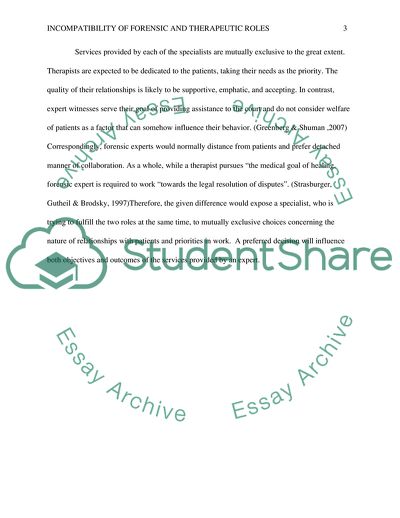Cite this document
(LASA Therapeutic and Forensic Roles Essay Example | Topics and Well Written Essays - 1750 words, n.d.)
LASA Therapeutic and Forensic Roles Essay Example | Topics and Well Written Essays - 1750 words. https://studentshare.org/psychology/1869103-lasa-therapeutic-and-forensic-roles
LASA Therapeutic and Forensic Roles Essay Example | Topics and Well Written Essays - 1750 words. https://studentshare.org/psychology/1869103-lasa-therapeutic-and-forensic-roles
(LASA Therapeutic and Forensic Roles Essay Example | Topics and Well Written Essays - 1750 Words)
LASA Therapeutic and Forensic Roles Essay Example | Topics and Well Written Essays - 1750 Words. https://studentshare.org/psychology/1869103-lasa-therapeutic-and-forensic-roles.
LASA Therapeutic and Forensic Roles Essay Example | Topics and Well Written Essays - 1750 Words. https://studentshare.org/psychology/1869103-lasa-therapeutic-and-forensic-roles.
“LASA Therapeutic and Forensic Roles Essay Example | Topics and Well Written Essays - 1750 Words”. https://studentshare.org/psychology/1869103-lasa-therapeutic-and-forensic-roles.


